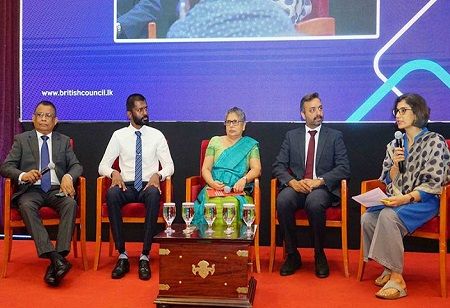The British Council has released a crucial report providing valuable insights into the current status and future prospects of transnational education (TNE) in Sri Lanka, highlighting both the opportunities and challenges encountered by students and educational institutions.
The report was unveiled at the BMICH and was attended by British High Commissioner to Sri Lanka Andrew Patrick, officials from the education ministry, education policymakers, representatives from the University Grants Commission, and officials from both state and non-state universities.
The Minister of Education, Susil Premjayantha said, “Despite Sri Lanka’s high literacy rate and impressive strides in basic education, higher education capacity remains a significant challenge, with only 44,000 of the 171,532 qualified students gaining admission to state universities in 2022. This shortfall has driven a growing demand for private higher education and transnational education which has proliferated in the last few years. We hope that this report will shed light on how TNE can bridge the gap in Sri Lanka’s higher education landscape.”
The Country Director of British Council Sri Lanka, Orlando Edwards said, “The report is testament to our ongoing commitment in South Asia where we collaborate with governments and stakeholders to enhance access and quality of international education while fostering cross-border partnerships and collaboration. Sri Lanka is rapidly becoming a hub for transnational education. In 2022-2023, it emerged as the second-largest country for UK TNE, accounting for 10% of all UK TNE enrolments globally with a 50% surge in UK TNE—totalling almost 54,000. This research report highlights the immense potential of TNE in bridging the gap in higher education access and driving economic growth for the country”.

